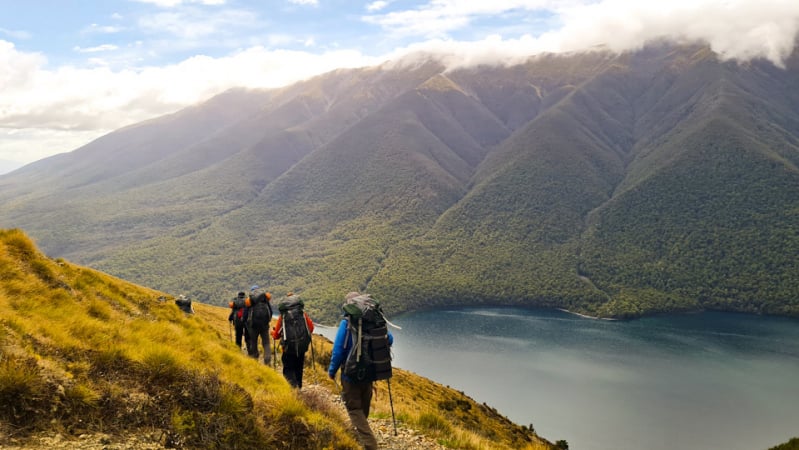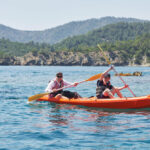Exploring New Zealand’s National Parks: Conservation and Recreation on Tour
With over 3.2 million visitors annually, New Zealand’s national parks are not only breathtakingly beautiful, but also play a crucial role in conservation efforts and providing recreational opportunities for tourists and locals alike. Exploring these parks offers a unique insight into the diverse flora and fauna of the country, as well as a chance to connect with nature on a deeper level. Understanding the delicate balance between conservation and recreation in these national parks is essential for anyone looking to truly appreciate the natural wonders of New Zealand.
One of the key impacts of tourism on New Zealand’s national parks is the need for sustainable practices to protect the fragile ecosystems found within them. From controlling the spread of invasive species to managing visitor numbers, park authorities are constantly working to ensure that these natural landscapes are preserved for future generations to enjoy. At the same time, recreational activities such as hiking, camping, and wildlife watching offer visitors a chance to experience the beauty of the parks firsthand, fostering a deeper appreciation for the environment.
In the next part of this article, we will delve into the specific conservation initiatives that are helping to protect New Zealand’s national parks, as well as the regulations in place to ensure that visitors can enjoy these pristine landscapes responsibly. From the endangered species that call these parks home to the challenges of managing tourism in a sustainable way, we will explore the various aspects of conservation and recreation in New Zealand’s national parks. Stay tuned for a closer look at how these efforts are shaping the future of these iconic natural spaces.
Research the National Parks
Before embarking on your journey to explore New Zealand’s national parks, take the time to research each park you plan to visit. Learn about the unique flora and fauna, the best hiking trails, and any important conservation efforts happening within the park. This knowledge will enhance your experience and deepen your appreciation for the natural beauty of New Zealand.
Respect the Environment
As you explore the national parks, remember to respect the environment and wildlife. Stay on marked trails to avoid damaging sensitive ecosystems, and do not feed or approach wildlife. Carry out any trash you bring in and be mindful of your impact on the environment. By practicing Leave No Trace principles, you can help preserve these national treasures for future generations.
Support Conservation Efforts
Consider supporting local conservation efforts while visiting New Zealand’s national parks. Many parks rely on donations and volunteers to protect and maintain the land. Look for opportunities to volunteer your time or donate to organizations that work to preserve the natural beauty of the parks. Your support can make a significant impact on the conservation of these precious resources.
Pack Proper Gear
When exploring New Zealand’s national parks, be sure to pack the proper gear for your adventures. Depending on the activities you have planned, you may need sturdy hiking boots, warm layers, a water bottle, and a map of the area. Be prepared for changes in weather and terrain, and always carry essentials like a first aid kit and emergency supplies. By packing smart, you can ensure a safe and enjoyable experience in the national parks.
Learn About Indigenous Culture
Take the time to learn about the indigenous culture of New Zealand, particularly the Maori people who have a deep connection to the land. Respect their traditions and cultural sites as you explore the national parks, and consider participating in cultural experiences that provide insight into Maori history and practices. By learning about the rich heritage of New Zealand, you can gain a greater appreciation for the land and its people.
Pros of Exploring New Zealand’s National Parks: Conservation and Recreation on Tour
1. Breathtaking Scenery: New Zealand’s national parks offer stunning landscapes, from snow-capped mountains to lush forests and pristine lakes. Exploring these parks on tour allows visitors to immerse themselves in the natural beauty of the country.
2. Conservation Efforts: By visiting national parks, tourists contribute to the preservation and protection of New Zealand’s unique flora and fauna. Many parks are home to endangered species, and tourism revenue helps fund conservation projects.
3. Outdoor Activities: National parks in New Zealand offer a wide range of outdoor activities, such as hiking, kayaking, and wildlife spotting. Tourists can enjoy these activities while appreciating the natural surroundings and biodiversity of the parks.
4. Cultural Encounters: Some national parks in New Zealand have significant cultural importance to indigenous Maori tribes. By exploring these parks on tour, visitors can learn about Maori traditions, history, and connections to the land.
5. Educational Opportunities: Guided tours in national parks provide valuable insights into the ecology, geology, and conservation efforts of these protected areas. Visitors can learn about the importance of biodiversity and sustainable tourism practices.
Cons of Exploring New Zealand’s National Parks: Conservation and Recreation on Tour
1. Environmental Impact: The influx of tourists into the national parks can lead to environmental degradation. Activities such as hiking, camping, and off-road driving can disturb the natural habitat and wildlife of the area.
2. Overcrowding: Popular national parks in New Zealand can become overcrowded, especially during peak tourist seasons. This can diminish the visitor experience, as well as put a strain on the park’s infrastructure and resources.
3. Risk of Accidents: With increased tourist activity in national parks, there is a higher risk of accidents and emergencies. Hikers getting lost, injuries during outdoor activities, and encounters with wildlife can pose safety concerns for visitors.
4. Disruption of Conservation Efforts: Conservation efforts in national parks can be disrupted by the presence of tourists. With increased human activity, conservationists may struggle to protect the local flora and fauna effectively.
5. Cultural Impact: The cultural significance of national parks to indigenous Maori communities can be overlooked or minimized in favor of tourism activities. This can lead to the erosion of traditional values and heritage.





